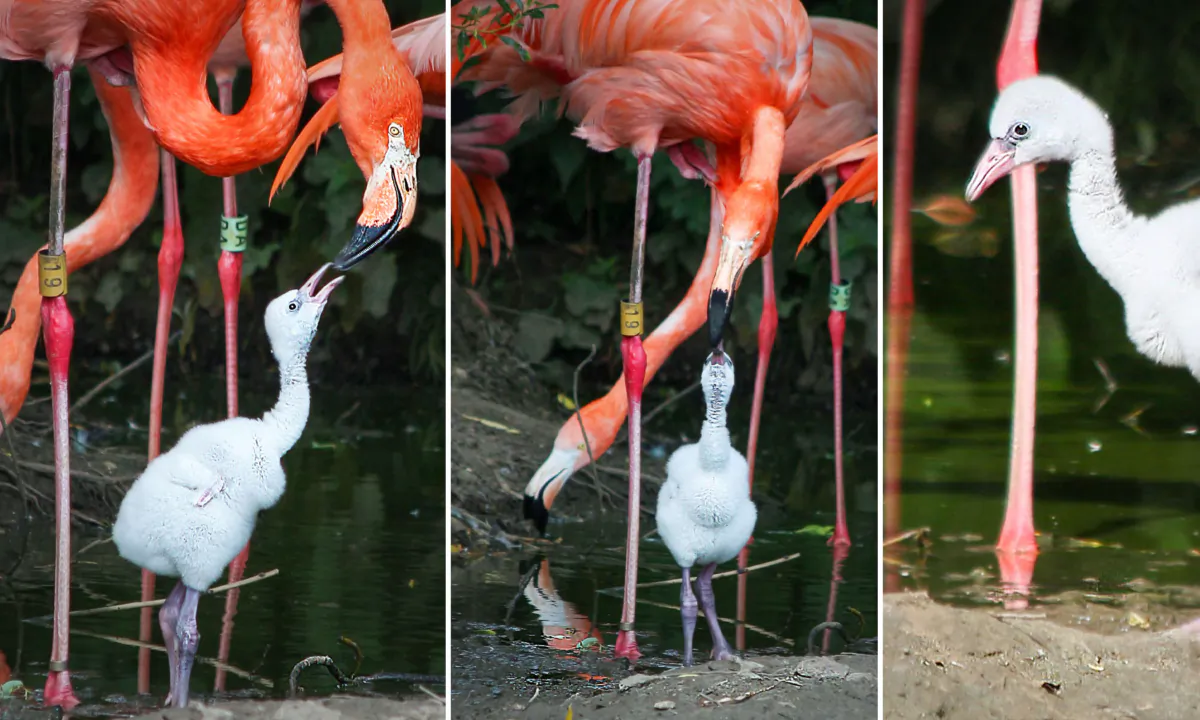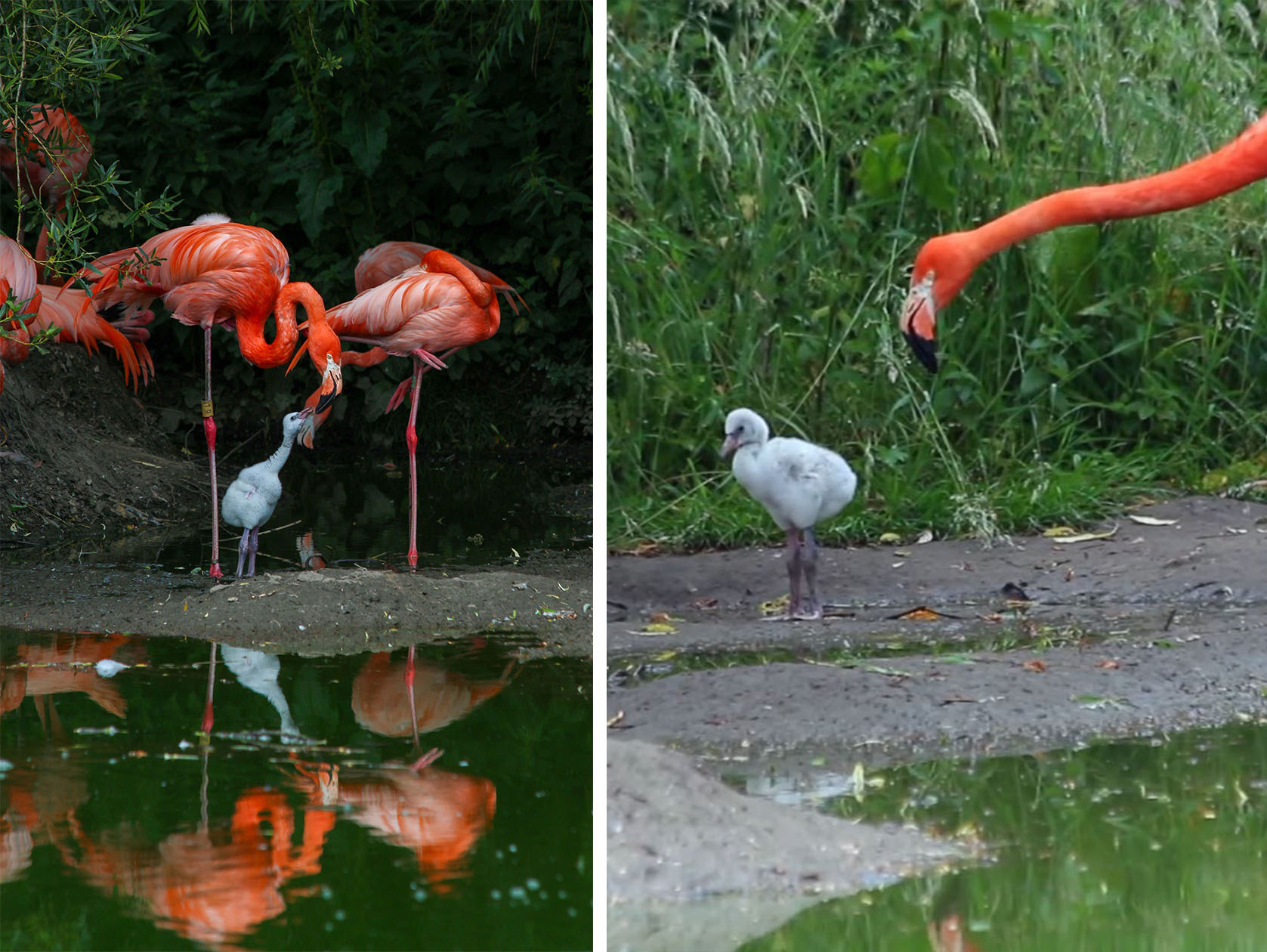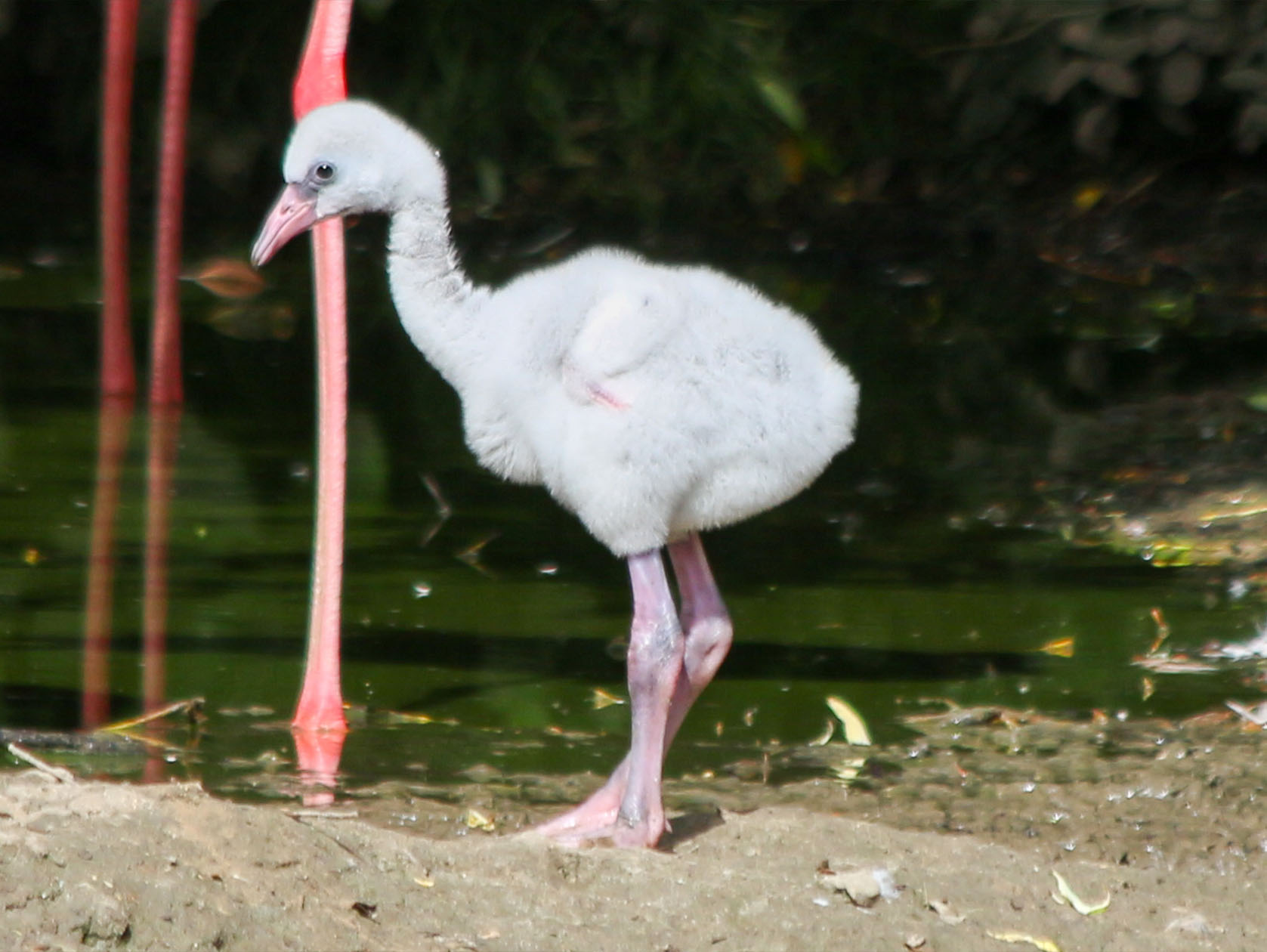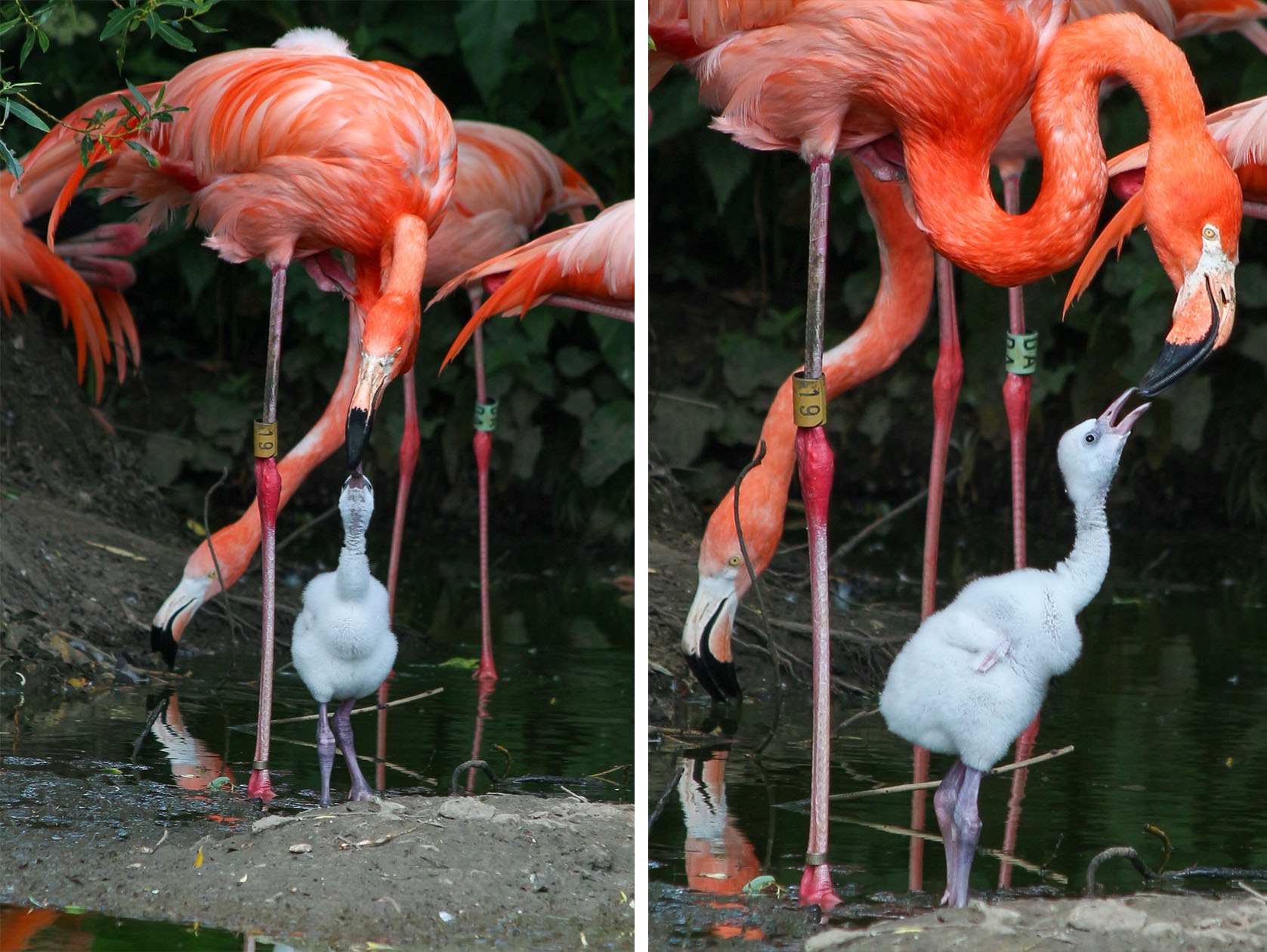
(Courtesy of Whipsnade Zoo)
An abandoned egg that had been rescued was incubated for 32 days before being introduced to an “adoptive” flamingo family, a zookeeper said. Soon the egg was taken under the wings of the feathered couple—Florence and Freddie—and, not long after that, it would hatch to become Whipsnade Conservation Zoo’s newest addition.
The fluffy, grey flamingo chick, now 3 weeks old, has been bonding with the feathered couple that adopted it, and other members of its flamboyance at the zoo in Dunstable, UK.

A 3-week-old flamingo chick mingles with members of its flamboyance at Whipsnade Zoo in Dunstable, UK. (Courtesy of Whipsnade Zoo)
In footage recently released by the zoo, the baby bird is seen mingling, wetting its feet, and dipping its beak alongside its new flamingo family. It is easy for visitors to spot the small chick among its flock because of its gray color. The bird’s iconic bright pink and orange plumage won’t develop for about a year.
“It’s important we step in and support the American flamingo flock whenever an egg is abandoned by its parents, especially as when left alone the eggs are at risk of predators,” Whipsnade Zoo birdkeeper Emily Merrick-White said in a zoo press release.

The grey flamingo chick stands out next to its bright-pink-feathered flock. (Courtesy of Whipsnade Zoo)
(Courtesy of Whipsnade Zoo)
“By incubating the eggs at our specialized bird nursery, we can make sure the chicks have the best chance of survival and ensure that Whipsnade Zoo has a healthy and strong flamboyance of flamingos.”
Currently, the chick is being nursed with an unusual-colored, bright-red “crop milk,” a nutritious milk made in flamingos’ digestive tracts that contains fat, protein, and blood cells. Although zookeepers had been waiting to find out whether the chick is a male or female, they have confirmed that it’s growing in confidence day by day.

The small flamingo chick mingles with adult flamingos at the Whipsnade Zoo. (Courtesy of Whipsnade Zoo)
“ZSL [Zoological Society of London], the international conservation charity behind Whipsnade Zoo, is working to restore wetland environments across Asia, Africa, in Amazonian flooded forests, and even central London—where the team is helping to restore the Thames estuary to help ensure the long-term survival of the many bird and marine species that call these incredible ecosystems home,” Ms. Merrick-White said.
She is sure the flamingo flock, now with its newest addition, will continue playing an important role in educating visitors, so as to inspire the next generation of conservationists.